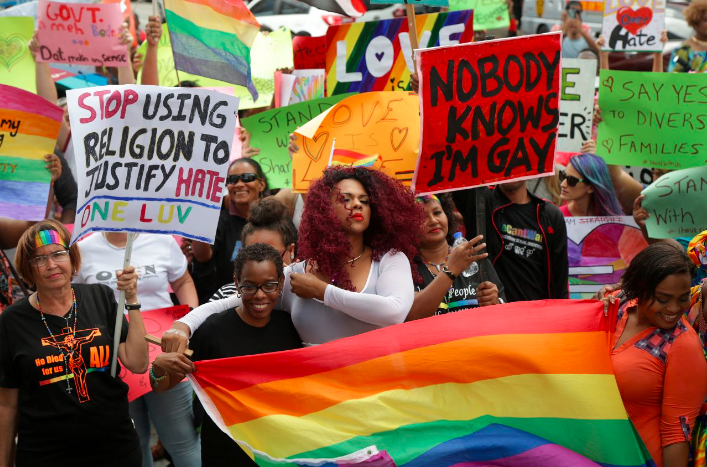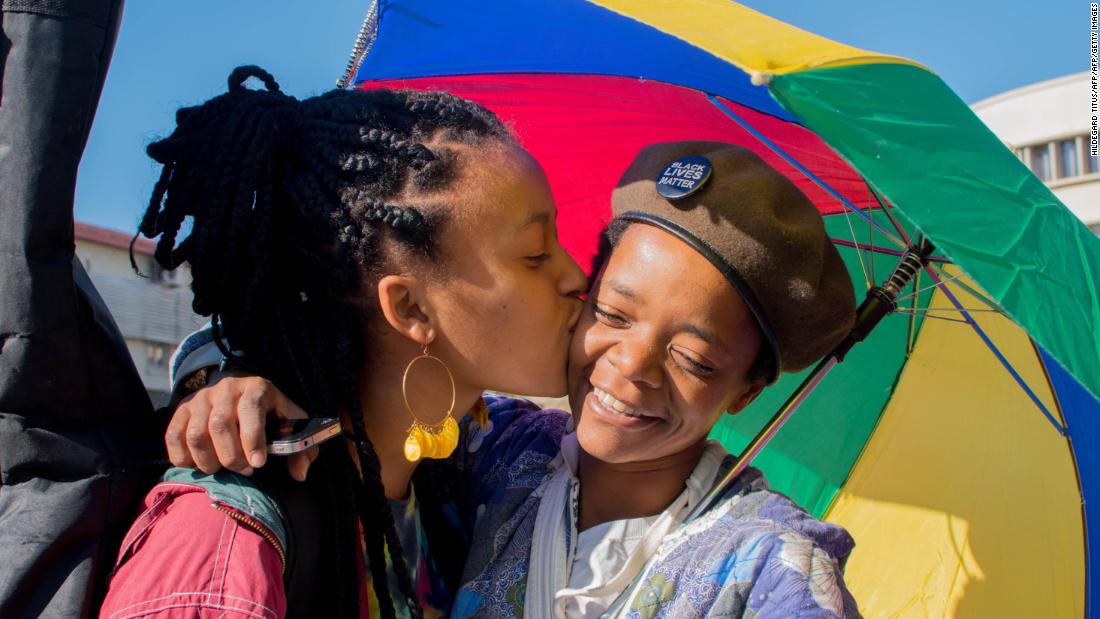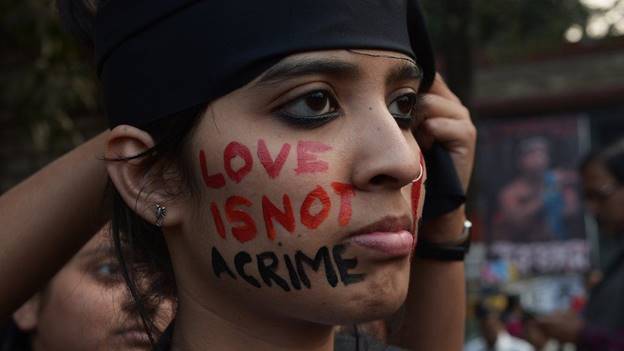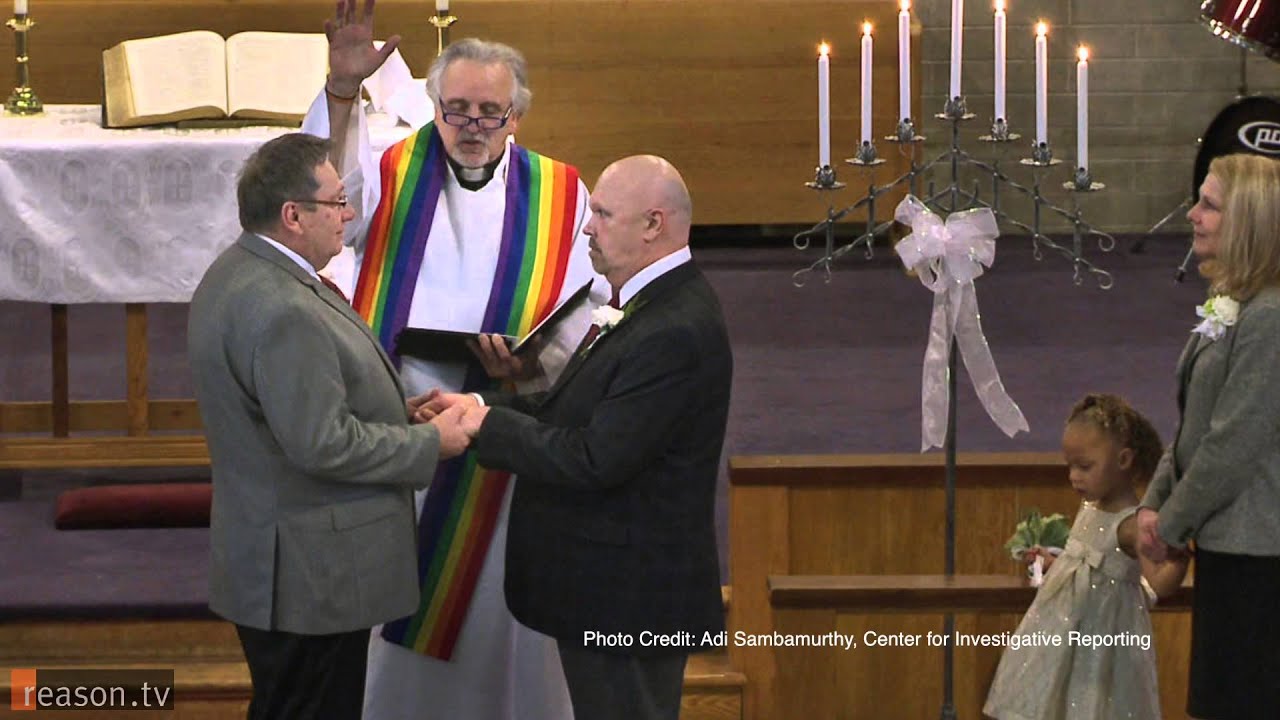

Homosexuality is not just a matter of personal choice or preference; it is a complex phenomenon that exists on many different levels. It is not something that can be easily understood or explained by looking at one single aspect, such as individual psychology or personal experiences.
Instead, it is a multifaceted phenomenon that is shaped by a variety of factors, including biology, psychology, culture, history, society, and ideology.
From an academic perspective, homosexuality is widely recognized as a natural variant of human sexuality.
Studies in fields such as biology, psychology, and sociology have found that homosexuality is not a mental disorder or a choice, but rather it is a normal aspect of human sexuality that has been present throughout human history. The medical and scientific community has long recognized that homosexuality is not a mental disorder or a choice, but rather it is a normal variant of human sexuality.
In addition to being a natural aspect of human sexuality, homosexuality is also a part of our society and culture. It is present in literature, art, music, and other forms of cultural expression. From ancient Greek and Roman cultures to contemporary art and literature, homosexuality has been depicted and celebrated throughout history.
Social media has also played a significant role in shaping public perceptions of homosexuality.
The rise of social media platforms has allowed LGBTQ+ individuals to connect and form communities, and has also given them a platform to share their stories and experiences. Social media has also been a powerful tool for raising awareness about LGBTQ+ issues and promoting acceptance and understanding of homosexuality.
When it comes to Christianity and homosexuality,
There is a wide range of views and beliefs. Some Christian denominations, such as the Catholic Church, view homosexuality as a sin, while others, such as the United Church of Christ, recognize and affirm the rights of LGBTQ+ individuals. The differences in views among denominations reflect the diversity of beliefs and perspectives within Christianity.
In addition to these factors, there are also ideological perspectives that shape our understanding of homosexuality.
Some ideologies, such as liberal feminism, view homosexuality as a form of social oppression that must be dismantled, while others, such as queer theory, view it as a site of resistance and empowerment.
What is homosexuality?
Homosexuality is the romantic or sexual attraction to people of the same gender. This means that a person who is gay is attracted to someone of the same sex, and a person who is lesbian is attracted to someone of the same sex.
In simple words, it's a sexual or romantic attraction towards individuals of the same gender.
How did Homosexuality come into being?
The origins of homosexuality are not fully understood and are a subject of ongoing debate and research. There is no scientific consensus on the specific causes of homosexuality, but several theories have been proposed.
One theory is that homosexuality has a biological basis,
and that it may be determined by genetics, hormones, or brain structure. Studies have shown that sexual orientation is likely influenced by a combination of genetic, hormonal, and environmental factors.
Another theory is that homosexuality is a product of early childhood experiences and development.
Some researchers suggest that certain experiences or relationships during childhood may influence the development of a person's sexual orientation.
Social and cultural factors also play a role in the development of homosexuality.
Society's attitudes towards homosexuality and the acceptance of gay and lesbian individuals can influence a person's sexual identity and behavior.
It is worth noting that many experts and researcher agree that sexual orientation is not a choice, but rather it is an inherent aspect of a person's identity
Causes of Homosexuality
A. Biological factors
B. Psychological factors
C. Social factors
A. Biological factors that may contribute to the development of homosexuality include genetics, hormones, and brain structure. Studies have shown that sexual orientation is likely influenced by a combination of genetic, hormonal, and environmental factors.
For example, twin studies have shown that genetics may play a role in sexual orientation, and research has also suggested that hormones may influence sexual orientation during prenatal development.
Brain imaging studies have also suggested that there may be differences in brain structure between gay and straight individuals.
B. Psychological factors that may contribute to the development of homosexuality include early childhood experiences and development.
Some researchers suggest that certain experiences or relationships during childhood may influence the development of a person's sexual orientation.
For example, some theories propose that a child who has a strong attachment to their same-sex parent may be more likely to develop a gay or lesbian orientation.
There are also theories that propose that family dynamics, such as a lack of a positive relationship with one's opposite-sex parent, may contribute to the development of homosexuality.
C. Social factors that may contribute to the development of homosexuality include societal attitudes towards homosexuality and the acceptance of gay and lesbian individuals.
Society's attitudes towards homosexuality and the acceptance of gay and lesbian individuals can influence a person's sexual identity and behavior.
For example, in cultures where homosexuality is more accepted, individuals may be more likely to identify as gay or lesbian and feel more comfortable expressing their sexuality.
Additionally, studies suggest that people who grow up in more liberal and accepting communities may be more likely to identify as gay or lesbian.
Colonialism and homosexuality:

Colonialism, the process of a country extending its control over other territories and peoples, has played a complex and controversial role in shaping attitudes towards homosexuality.
During the colonial period, many European colonizers brought their own cultural and societal beliefs about gender and sexuality with them to the colonies. These beliefs often included a strong stigmatization of homosexuality, and as a result, many colonies adopted laws criminalizing homosexuality, which were modeled after European laws.
However, colonialism also led to the suppression of traditional indigenous beliefs and practices, which in some cases, were more tolerant and accepting of homosexuality.
For example, in some indigenous cultures, there were specific roles and functions for individuals who did not conform to the gender binary, such as the "two-spirit" individuals in some North American tribes, who were considered to have both male and female spirits

sAdditionally, colonialism also led to the forced displacement of people and the destruction of communities, which often resulted in the loss of cultural practices, traditions, and knowledge that were more accepting of homosexuality.
Colonialism has played a complex role in shaping attitudes towards homosexuality.
On one hand, colonizers brought their own stigmatizing beliefs and laws criminalizing homosexuality to the colonies, but on the other hand, it also led to the suppression of traditional indigenous beliefs and practices that were more accepting of homosexuality, and the loss of cultural practices, traditions, and knowledge that were more accepting.
Capitalism and homosexuality:
The relationship between capitalism and homosexuality is a complex and multifaceted topic.
Capitalism has created an inclusive society:
Some argue that capitalism has played a role in promoting homosexuality by creating a more tolerant and accepting society, while others argue that capitalism has had a negative impact on the LGBTQ+ community.
Freedom and liberal values of Capitalism:
On one hand, capitalism has led to an increase in individual freedom and choice, which has allowed for greater acceptance and visibility of homosexuality. The rise of the market economy has led to the creation of a consumer culture, in which companies and businesses are keen to appeal to the LGBTQ+ community as a consumer group, and this has led to greater representation and acceptance of homosexuality in the media and advertising.
On the other hand, capitalism has also led to increased economic inequality,
which has a disproportionately negative impact on marginalized groups, including the LGBTQ+ community. The lack of access to resources and opportunities can make it harder for LGBTQ+ individuals to be open and accepted in society, especially in less developed countries where the market economy is not as established and the LGBTQ+ rights are not as recognized.
Additionally, some argue that capitalism has led to the commodification of LGBTQ+ identities and experiences, in which the LGBTQ+ community is reduced to a consumer market to be targeted, rather than a group of individuals with specific needs and rights.
In conclusion, the relationship between capitalism and homosexuality is a complex one, and it is argued that capitalism has played both a positive and negative role in promoting homosexuality.
On one hand, capitalism has led to greater acceptance and visibility of homosexuality, but on the other hand, it has also led to increased economic inequality and the commodification of LGBTQ+ identities.
Christianity and Homosexuality

Overview of Christianity and its beliefs
Christianity is one of the world's major religions, with an estimated 2.3 billion followers worldwide. It is based on the life, teachings, death and resurrection of Jesus Christ, who is considered by Christians to be the son of God and the savior of humanity.
Some of the key beliefs of Christianity include:
· The belief in one God,
who is the creator and ruler of the universe, and who is loving, just, and holy. -The belief that Jesus Christ is the son of God, who was born of a virgin, lived a sinless life, and died on the cross to atone for the sins of humanity.
· The belief in the resurrection of Jesus Christ,
In which he rose from the dead on the third day after his crucifixion and ascended into heaven.
· The belief in the Holy Trinity
Which teaches that God is one being in three persons: the Father, the Son (Jesus Christ), and the Holy Spirit.
· The belief in the Bible
As the inspired word of God, containing teachings and guidance for living a Christian life.
-The belief in salvation, the process by which an individual is saved from the penalty of sin and granted eternal life with God through faith in Jesus Christ as the savior.
The belief in the importance of living a life
In accordance with the teachings of Jesus Christ, including love, compassion, and service to others.
Christianity has many different denominations and sects, each with its own beliefs and practices. Some of the major denominations include Roman Catholicism, Eastern Orthodoxy, Protestantism, and Anglicanism.
Christian Denominations and their views on Homosexuality
A. Conservative denominations such as Evangelical, Pentecostal, and certain branches of Protestantism
tend to hold a traditional view of homosexuality as a sin, and therefore consider it to be morally wrong.
They often cite scriptural passages that mention homosexuality, and interpret them as condemning the behavior. They tend to advocate for traditional marriage between a man and a woman and may not support same-sex marriage or ordaining gay and lesbian individuals as clergy.
B. Progressive denominations such as the United Church of Christ, the Episcopal Church, and the Metropolitan Community Church tend to have more accepting views of homosexuality.
They may interpret scriptural passages differently, or argue that the passages do not necessarily apply to contemporary understandings of homosexuality. They may support same-sex marriage and ordaining gay and lesbian individuals as clergy.
C. There are many different views among denominations and even within denominations themselves.
Some denominations may have official policies or statements on homosexuality,
while others may leave it up to individual congregations or clergy to decide.
There is also a diversity of views among individuals within denominations, and the way a person may interpret and implement their faith can affect their personal stance on homosexuality.
Therefore, it is important to note that views on homosexuality within Christianity can vary widely, and it's not accurate to say that Christianity as a whole holds a single view on this matter.
Theological perspective of homosexuality: Christian view
A. Traditional theological perspectives on homosexuality
Tend to view it as a sin and an aberration from God's plan for human sexuality.
They often cite scriptural passages that mention homosexuality as evidence for this perspective, and may argue that the only acceptable expression of sexuality is between a man and a woman in the context of marriage.
They may also view homosexuality as a choice or a behavior that can be changed through therapy or conversion efforts.
B. Progressive theological perspectives on homosexuality argue that the
Scriptural passages on homosexuality should be understood in the context of the time in which they were written and that our understanding of human sexuality has evolved.
They may argue that sexual orientation is not a choice and that being gay or lesbian is a natural variation of human sexuality.

They may also focus on the principles of love, compassion and inclusivity in their understanding of homosexuality
A. The role of love and compassion is central to many progressive theological perspectives on homosexuality. They argue that Christianity should be focused on loving and accepting all people, regardless of their sexual orientation.
This perspective emphasizes the importance of treating gay and lesbian individuals with respect and dignity, and viewing them as equal members of the church and society.
It also stresses the importance of understanding and accepting different forms of love and relationships.
Christianity and Homosexuality: peeping into last 100 years of history:
Christianity has had a complex history when it comes to the treatment of homosexuals in the past 100 years. The attitudes and beliefs of Christians towards homosexuality have varied widely, with some Christians embracing and accepting LGBTQ+ individuals, while others have rejected and discriminated against them.
In the early 20th century, homosexuality was largely considered to be a sin or a mental illness by many Christians. This view was reflected in the laws of many countries, which criminalized homosexuality.
As a result, many LGBTQ+ individuals faced discrimination and persecution. In the United States, for example, the government conducted a campaign of persecution against gay and lesbian individuals known as the "Lavender Scare", which led to the firing and blacklisting of thousands of gay and lesbian employees from government jobs.
However, in the 1960s and 1970s, there was a growing movement among some Christians to re-examine their attitudes towards homosexuality. This movement was influenced by the Civil Rights Movement and the feminist movement,
which called for greater equality and acceptance for marginalized groups. As a result, some Christians began to advocate for the acceptance and inclusion of LGBTQ+ individuals within the church.
In the 1980s and 1990s, the AIDS crisis brought the issue of homosexuality to the forefront of public consciousness. Many Christian organizations, such as the Metropolitan Community Church, worked to provide support and care for people living with AIDS, regardless of their sexual orientation. This helped to further shift attitudes within the Christian community towards acceptance of LGBTQ+ individuals.
In recent years, there has been a growing divide within the Christian community over the issue of homosexuality.
Some churches and Christian denominations, such as the United Church of Christ and the Episcopal Church, have embraced and accepted LGBTQ+ individuals, and have even begun to perform same-sex marriages. However, other churches and denominations, such as the Southern Baptist Convention and the Catholic Church, have maintained their traditional views on homosexuality, and continue to reject and discriminate against LGBTQ+ individuals.
As a whole, Christianity has had a complex and varied history when it comes to the treatment of homosexuals in the past 100 years. While there has been a growing movement towards acceptance and inclusion of LGBTQ+ individuals within the Christian community, there continues to be a significant divide among Christians over the issue of homosexuality.
It is worth noting that Christianity is a diverse religion with multiple denominations and interpretations, thus the attitude towards homosexuality varies widely. While some Christian denominations have been more accepting and welcoming to LGBTQ+ people, others have been more conservative, and have used the religion to justify discrimination and persecution against LGBTQ+ individuals.
It is important to recognize that the attitudes and beliefs of Christians towards homosexuality are varied and complex and it is not accurate to make generalization about Christianity's attitude towards homosexuality.
The academic debate:
Postmodernism and homosexuality:
Postmodernism is a complex and multifaceted intellectual movement that emerged in the mid-20th century, and it has had an impact on many areas of thought, including the understanding of homosexuality.
Postmodernism critiques the idea that there is a single, objective reality and instead emphasizes the diversity and multiplicity of perspectives.
In the context of homosexuality, postmodernism challenges the idea that there is a "normal" or "natural" way of being, and instead emphasizes the diversity of sexual orientations and identities.
Postmodernism also critiques the idea of essentialism, which holds that certain characteristics or traits are inherent and unchangeable. In the context of homosexuality, postmodernism challenges the idea that being gay or lesbian is an inherent aspect of a person's identity, and instead emphasizes the fluidity and changeability of sexual orientation
Postmodernism also highlights the importance of the social construction of reality and the role of power in shaping our understanding of the world.
In the context of homosexuality, postmodernism highlights the ways in which society's attitudes and beliefs about homosexuality have been shaped by historical and cultural factors and have been used to justify discrimination and oppression of gay and lesbian individuals.
In conclusion, postmodernism provides a framework for understanding the complexity and diversity of human experience, including sexual orientation, and highlights the importance of challenging dominant norms and understanding the social construction of reality, which can help to promote acceptance and equality for gay and lesbian individuals.
What is heteronormativity?
Heteronormativity refers to the societal belief that heterosexuality is the norm and that all individuals should conform to that norm. It is the assumption that everyone is heterosexual and that heterosexual relationships are the only "normal" and legitimate form of relationship. Heteronormative culture reinforces the idea that anything outside of this norm is deviant, abnormal, or less valid. This can lead to discrimination and marginalization of individuals and communities who do not conform to this norm, such as those who identify as LGBTQ+.
International Relations and Homosexuality:
International relations (IR) is the study of how nations and other actors in the international system interact with each other. In recent years, the topic of homosexuality and the rights of LGBTQ+ individuals have become an increasingly important issue in international relations.
Many countries have laws that discriminate against or criminalize homosexuality, and some countries have laws that specifically target LGBTQ+ individuals for persecution. The international community has responded by condemning such laws and advocating for the protection and promotion of LGBTQ+ rights.
Some countries have also used the issue of LGBTQ+ rights as a tool for diplomacy and foreign policy. (HUMAN CENTRIC SECURITY)
Gender and Homosexuality:
Gender is a social construct that refers to the roles, behaviors, and expectations that society has for individuals based on their sex.
Homosexuality is often viewed as being in opposition to traditional gender roles and expectations.
Some argue that homosexuality is a form of gender nonconformity, as gay men and lesbian women may not conform to societal expectations of masculinity and femininity.
Studies have also shown that gender nonconforming individuals are more likely to identify as gay or lesbian. Additionally, many societies have traditionally linked same-sex attraction with femininity in men and masculinity in women.
Sociology and Homosexuality:
Sociology is the study of human social behavior, relationships, and institutions.
The study of homosexuality in sociology has focused on understanding how society shapes and is shaped by sexual orientation and gender identity.
Sociological research has examined the ways in which societal attitudes towards homosexuality have changed over time and the impact that these attitudes have on the lives of gay and lesbian individuals.
Studies have also examined the ways in which gay and lesbian individuals navigate and negotiate their identities within different social contexts.
Additionally, sociology often examines the impact of social policies such as marriage equality laws and the way laws and policies affect the lives of LGBTQ+ communities.
Philosophy and Homosexuality:
Philosophy is the study of fundamental questions about the nature of reality, knowledge, and ethics. In the realm of ethics, philosophy has been used to examine the morality of homosexuality.
Some philosophers argue that homosexuality is morally neutral, while others argue that it is morally wrong. There are also philosophers who argue that homosexuality is morally good, and that society should work to promote acceptance and understanding of gay and lesbian individuals. Philosophy also examines the concept of sexual orientation and the nature of love and relationships. Additionally, it has been used to examine the social and political issues surrounding homosexuality such as discrimination, legal rights and marriage equality.
Social Media and Homosexuality
Social media has played a significant role in promoting acceptance and visibility of homosexuality. It has provided a platform for LGBTQ+ individuals to connect, share their experiences, and find support and acceptance.
Social media has also been a powerful tool for raising awareness about LGBTQ+ rights and issues, and for organizing and promoting events and campaigns.
One of the ways in which social media has promoted homosexuality is through the creation of online communities and support groups.
These communities provide a safe space for LGBTQ+ individuals to connect with others who share similar experiences and struggles.
They also provide a platform for individuals to share their stories, offer advice and support, and provide resources and information about LGBTQ+ rights and issues.
Another way in which social media has promoted homosexuality is through the use of hashtags and social media campaigns.
These campaigns have helped to raise awareness about LGBTQ+ issues and to promote visibility and acceptance of the LGBTQ+ community. For example, the hashtag #LoveWins, which was used in the wake of the Supreme Court's decision to legalize same-sex marriage in the United States, was widely used on social media and helped to promote acceptance and visibility of homosexuality.
Social media has also been used as a tool for organizing events and campaigns, such as Pride parades and rallies. These events and campaigns have helped to bring the LGBTQ+ community together and to raise awareness about LGBTQ+ issues.
Overall, social media has played a significant role in promoting acceptance and visibility of homosexuality.
It has provided a platform for LGBTQ+ individuals to connect and find support and acceptance, and it has been a powerful tool for raising awareness about LGBTQ+ rights and issues.
Movies and homosexuality:

Movies have played an important role in promoting homosexuality by increasing representation and visibility of LGBTQ+ characters and stories in mainstream media.
Some movies have portrayed positive and nuanced representation of LGBTQ+ characters, depicting their lives and struggles in a realistic and empathetic way.
This has helped to increase understanding and acceptance of homosexuality among the general public.
Additionally, the representation of LGBTQ+ characters in movies also has a positive impact on the LGBTQ+ community, helping to validate their identities and experiences and providing role models.
Another way movies promote homosexuality is by depicting LGBTQ+ characters in leading roles and in diverse stories, instead of being relegated to secondary or stereotypical roles. This helps to challenge stereotypes and prejudices about homosexuality, and to show that LGBTQ+ people are just as varied and complex as everyone else.
Moreover, movies also promote homosexuality by providing a platform for LGBTQ+ filmmakers and creators, who can bring their own perspectives and experiences to their work, and help to amplify underrepresented voices and stories.
In conclusion, movies have played an important role in promoting homosexuality by increasing representation and visibility of LGBTQ+ characters and stories in mainstream media, depicting positive and nuanced representation, challenging stereotypes and prejudices and providing a platform for LGBTQ+ filmmakers and creators to share their perspectives and experiences.
Homosexuality and hate speech:
Homosexuality and hate speech are unfortunately often linked, as individuals who identify as LGBTQ+ may be targeted with hate speech and verbal abuse.
Hate speech is defined as any speech, gesture, conduct, writing, or display that may incite violence or prejudicial action or because it disparages or intimidates a particular individual or group, or because it may reasonably be perceived as doing so.
Hate speech towards the LGBTQ+ community can take many forms, including name-calling, slurs, and threats of violence. It can occur in person, online, or through other forms of communication.
Hate speech can be particularly harmful to LGBTQ+ individuals, as it can contribute to feelings of fear, isolation, and marginalization.
Hate speech is not protected by the freedom of speech, and it's illegal in many countries. It's important to recognize that hate speech can be a form of discrimination and it can cause significant harm to the targeted individuals or groups.
In conclusion, homosexuality and hate speech are often linked, as individuals who identify as LGBTQ+ may be targeted with hate speech and verbal abuse.
Hate speech can take many forms and it can be harmful to the targeted individuals or groups. It's important to recognize that hate speech is not protected by freedom of speech and it's illegal in many countries.
Society should work towards creating an inclusive and accepting environment for all, where hate speech is not tolerated.

Homosexuals and identity crisis:
There is a common misconception that homosexuality is related to personality confusion or that being gay or lesbian is a choice. However, research and studies have shown that this is not the case.
Sexual orientation, including homosexuality, is a natural aspect of human diversity and is not a disorder or a mental illness. The American Psychological Association (APA) states that sexual orientation is not a choice, but rather is a complex interplay of genetic, hormonal, and environmental factors.
Similarly, the American Psychiatric Association (APA) states that homosexuality is not a disorder and that it does not cause an individual to have any personality confusion.
Research has shown that there is no evidence that sexual orientation can be changed through therapy or other treatments.
It's also important to note that, gender identity, which is a person's sense of their own gender, and sexual orientation, which refers to a person's sexual attraction to others, are separate concepts.
A person may identify as a certain gender and also have a same-sex attraction, or a person may identify as a gender different from the sex they were assigned at birth and have a heterosexual attraction.
In conclusion, homosexuality is not related to personality confusion, it is a natural aspect of human diversity and there is no evidence that it can be changed through therapy or other treatments. It's important to respect an individual's sexual orientation and gender identity.
Homosexuality and Anxiety:
Homosexuality can be associated with increased levels of anxiety in some individuals, particularly due to societal stigmatization and discrimination. Research has shown that LGBTQ+ individuals are at a higher risk for mental health issues such as anxiety and depression, as compared to their heterosexual counterparts.
Being a member of the LGBTQ+ community is associated with a variety of stressors, such as discrimination, harassment, and prejudice. These stressors can lead to feelings of isolation and marginalization, which can contribute to the development of anxiety. Additionally, internalized homophobia, or the acceptance of negative societal attitudes towards homosexuality, can also lead to increased anxiety.
Furthermore, LGBTQ+ individuals may also face rejection from family and friends, lack of acceptance from the community, and difficulties in accessing appropriate healthcare, which can exacerbate feelings of anxiety.
It's important to note that, while anxiety may be more prevalent among LGBTQ+ individuals, it doesn't mean that all LGBTQ+ individuals will experience anxiety. There are also LGBTQ+ individuals who experience high level of well-being and have a positive self-esteem.
In conclusion, homosexuality can be associated with increased levels of anxiety in some individuals, particularly due to societal stigmatization and discrimination.
However, it's important to recognize that not all LGBTQ+ individuals will experience anxiety, and that mental well-being is not determined by one's sexual orientation.
It's essential that society provides support and acceptance to the LGBTQ+ community to help alleviate these feelings of anxiety and improve their overall mental health.
Conclusion:
In conclusion, Homosexuality is a complex phenomenon that exists on many different levels. It is not something that can be easily understood or explained by looking at one single aspect, such as individual psychology or personal experiences.
It is a multifaceted phenomenon that is shaped by a variety of factors, including biology, psychology, culture, history, society, and ideology.
From academic perspective, it is widely recognized as a natural variant of human sexuality. Social media has played a significant role in shaping public perceptions of homosexuality.
Christianity also has a wide range of views on homosexuality. In addition to these factors, there are also ideological perspectives that shape our understanding of homosexuality
.jpeg)



